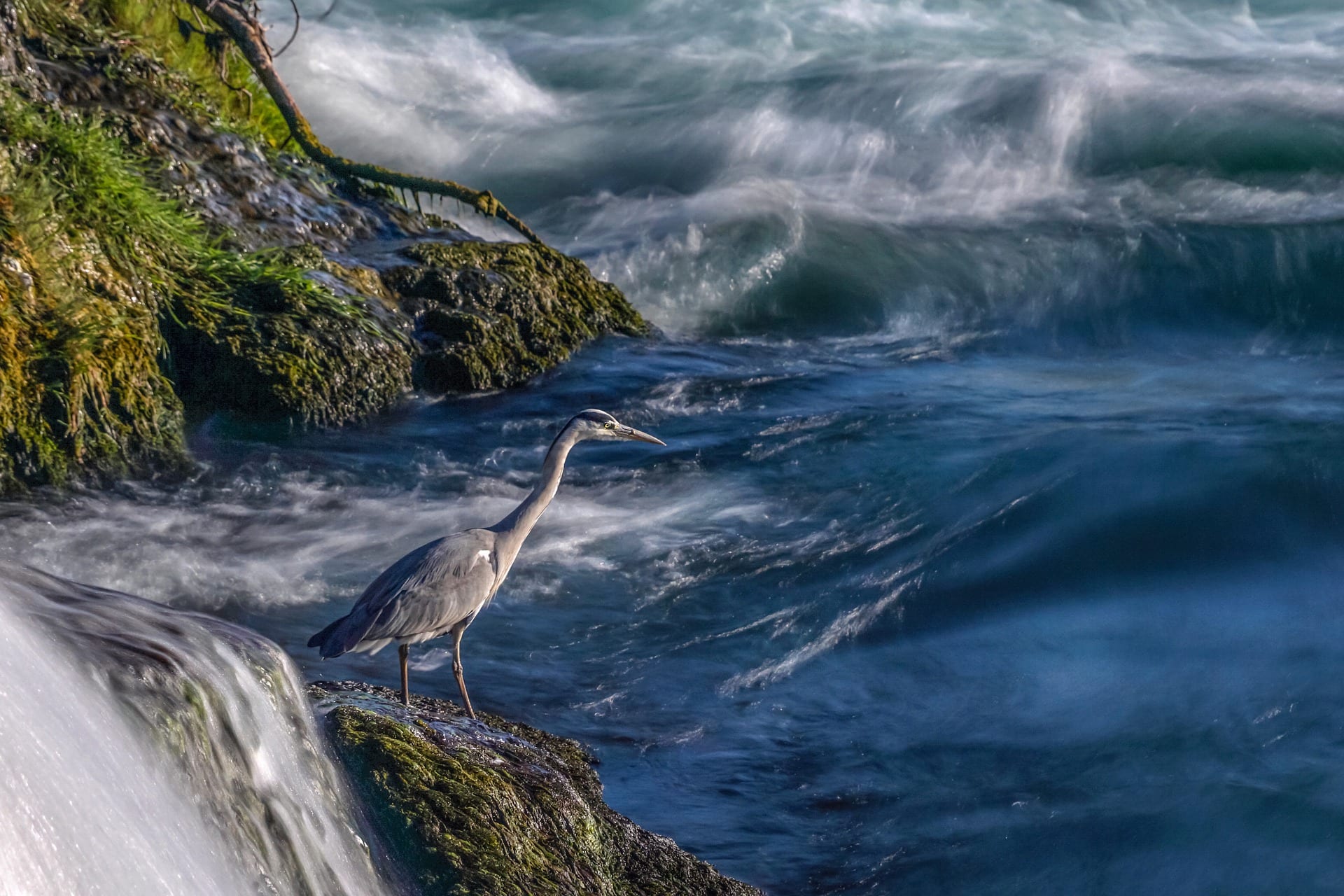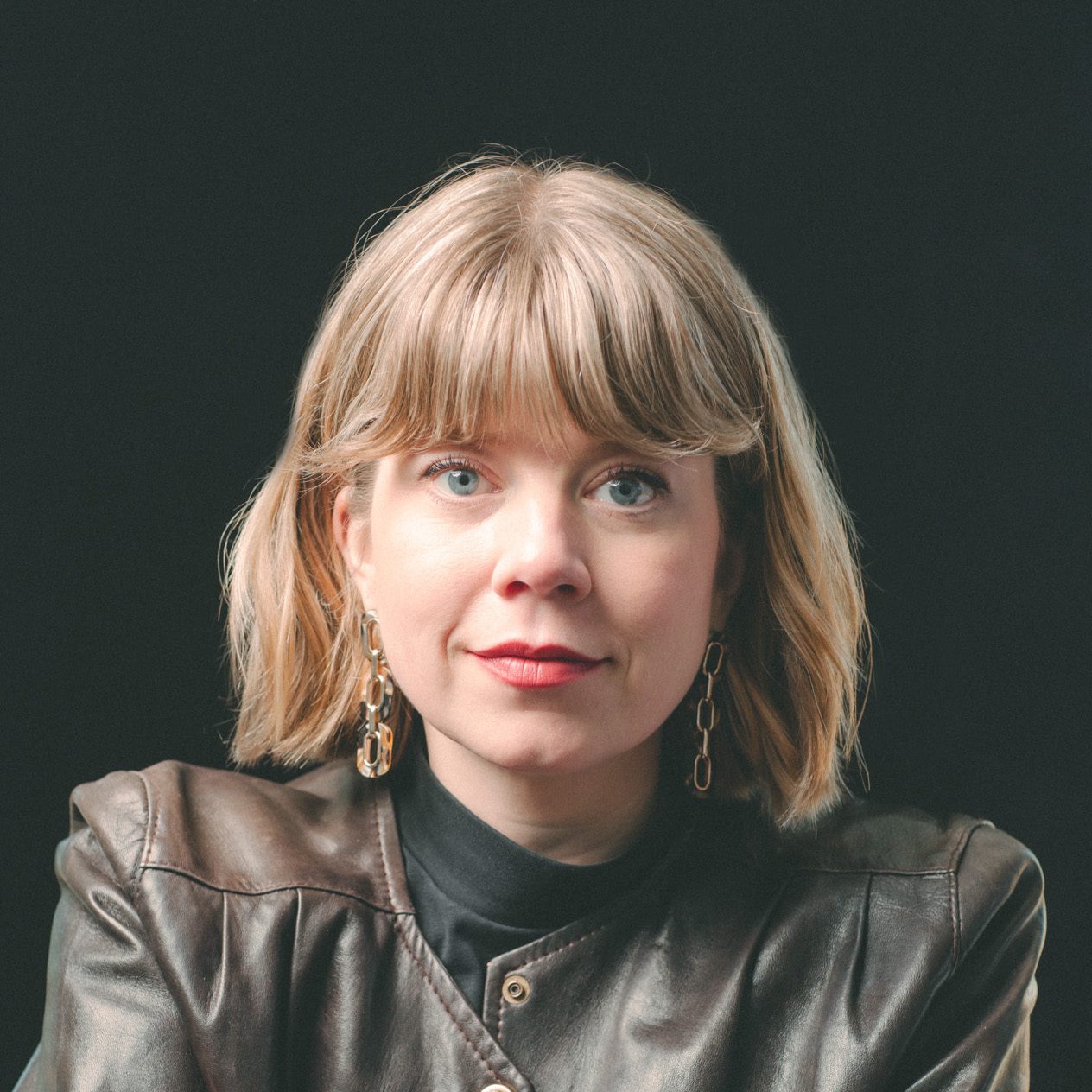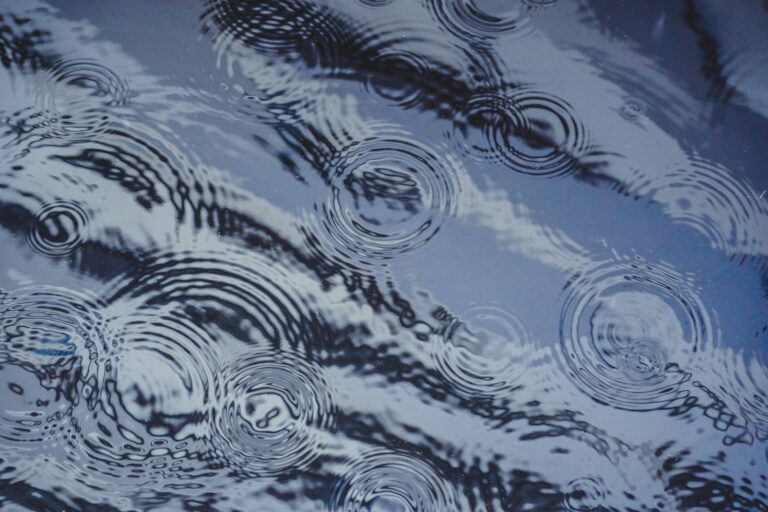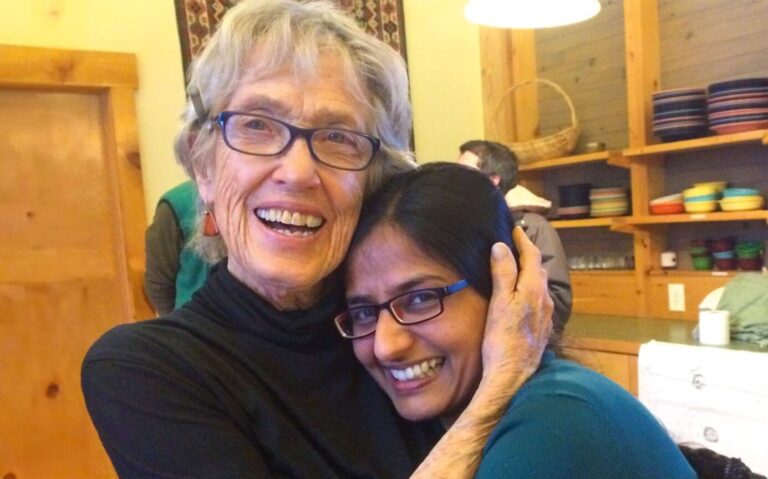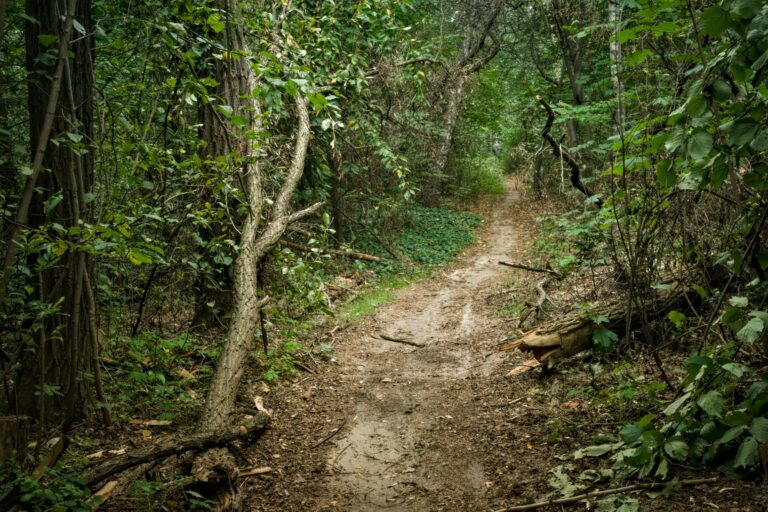On September 1, 2019, the category five storm Hurricane Dorian slammed into the Bahamas with gusts of 354 kilometres per hour and storm surges of over six metres. Instead of sweeping up what it could before steadily moving on, Dorian was patient, pummelling the islands for over forty hours straight. More than 70,000 people were displaced and 13,000 homes destroyed. On land, as the morgues filled up, bodies were piled high in refrigerated containers. Search-and-rescue dogs sniffed out corpses from under the debris; many were buried too deep for anyone to reach. Though the official death toll was seventy-four, some—including the Bahamas health minister at the time—believe the real number is much, much higher.
Bethuel Nyachienga is a mental health expert who has provided psychosocial support to more than 4,000 Hurricane Dorian survivors since September 2019. Nyachienga says the most common effects that survivors of catastrophes like this one report are insomnia, depression, and feeling retraumatized every time the wind is strong. What’s clearer from observation is the excessive drinking and drug consumption that many survivors don’t want to talk about. A 2017 report from the American Psychological Association (APA) titled Mental Health and Our Changing Climate details this kind of fallout, describing how PTSD, suicidality, depression, compounded stress, domestic abuse, child abuse, and substance abuse often spike after climate-linked calamities.
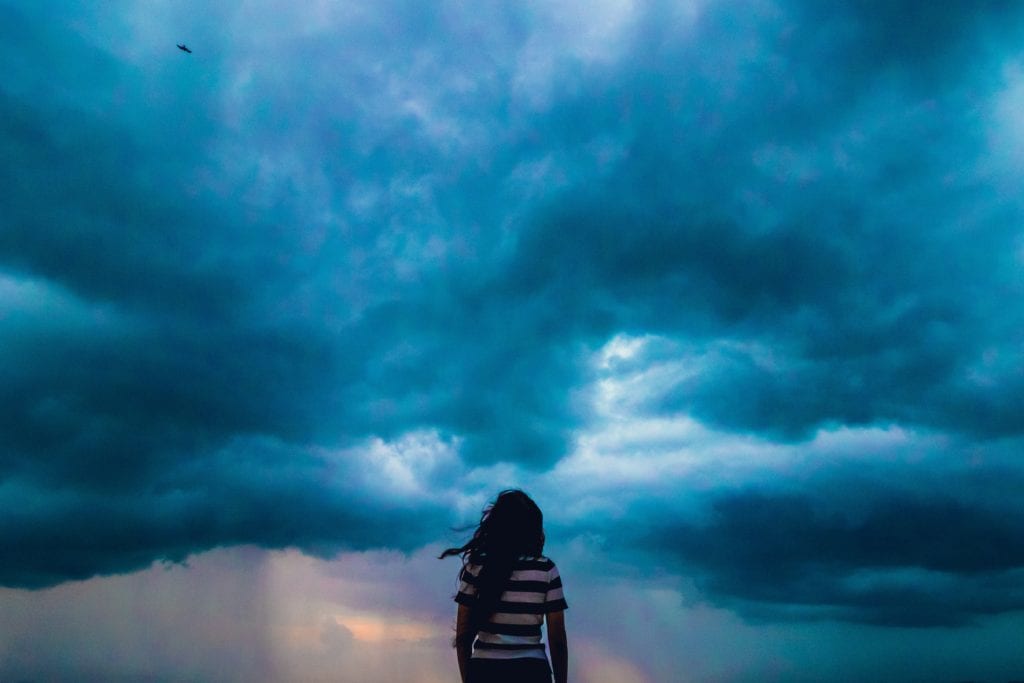
Even far away from these disasters, psychologists are now finding, just knowing about the severity of our climate predicament can take its own kind of toll. In recent years, the climate and wider ecological crisis has led to an explosion of what has been termed eco-anxiety, which the APA defines as the “chronic fear of environmental doom.” It is born of the barrage of increasingly worse environmental news combined with the knowledge that actions taken so far to address the problem have been ineffective or insufficient, and it destroys people’s capacity to feel safe in the world. The stress of worrying about the future of the biosphere, the species, one’s community, and one’s life, as well as already occurring environmental disasters, can look more like cycling through grief, fear, shame, guilt, resignation, despair, and nihilism than just anxiety.
Last spring, University of Helsinki researcher Panu Pihkala wrote a piece for the BBC that explored this growing phenomenon. An environmental theologian, he described how many people, even far from the front lines of climate change, are increasingly being forced to confront the idea of their own vulnerability because “the world is revealed to be much more tragic and fragile than people thought it was.” This profound disruption then sends them into a process of mourning the future they believed would come—a future of ecological stability—and which they now know won’t.
What you don’t want is for people to first and foremost think their eco-anxiety is in itself a problem. It is a natural response to a real and unfolding threat, so the only label it deserves is “reasonable.”
In 2019 the Yale Program on Climate Change Communication mapped the opinions of more than 9,000 Canadians, and 64 percent responded that they think climate change will start to harm people living in Canada within the next ten years. A national opinion survey of 2,000 people, carried out by Abacus Data that same year, showed that one in four Canadians think about climate change often and are getting “really anxious” about it. A similarly sized 2020 survey conducted by OnePoll revealed that 78 percent of Generation Z in the US do not plan on having kids because of climate change, while 71 percent of millennials in the US say that climate change has negatively affected their mental health. Stress levels are on the rise, and young people, who feel betrayed by older generations that aren’t cleaning up their own mess, are the most susceptible. As one young climate striker’s sign put it: “We won’t die from old age. We’ll die from climate change.” Another’s asked: “Why Should I Study For a Future I Won’t Have?”
Climate-Aware Therapy
“I’ve been seeing teens who [felt] suicidal because the pain and distress . . . from the coronavirus is finally starting to mirror how they’ve been feeling about climate change for a long time, and they’re wondering, Why on earth can’t people recognize the scale of the threat in the longer term?” says Caroline Hickman, a British clinical psychotherapist.
Hickman is part of a growing movement of “climate-aware” psycho-therapists, who help people cope with complex emotions that stem from awareness of environmental crises. It can be difficult to isolate climate change as a reason for seeking therapy, so no one can say precisely how many therapists are working with people on climate-related issues. But those specializing in eco-anxiety and its companion emotions are starting to get professionally organized in groups like the Climate Psychology Alliances of the United Kingdom and North America, which between them have about 2,000 mental health care practitioners on their mailing lists.
Often, these therapists say, their clients seek them out because of work stress or depression, then concerns about the climate arise in the course of therapy. Some started mentioning the climate as a source of stress after the 2016 election of Donald Trump; others did so after the publication of major news, like the 2018 UN Intergovernmental Panel on Climate Change report, which was widely summarized as saying, “We have twelve years to avert climate catastrophe.” For others still, it was in the wake of a variety of climate disasters that have since struck. Leslie Davenport, a climate-aware marriage and family therapist in Tacoma, Washington, says those who sought her help for eco-anxiety made up 25 percent of her client base last year, up from none five years earlier.
The field is emerging, and the evidence base is not yet firmly established for which approaches work best to help people manage their environmentally linked distress. That’s partly because eco-anxiety is not a pathology. You won’t find it listed as a condition in the Diagnostic and Statistical Manual of Mental Disorders, and climate-aware therapists aren’t rushing to include it. “What you don’t want is for people to first and foremost think their eco-anxiety is in itself a problem,” Hickman says. It is a natural response to a real and unfolding threat, so the only label it deserves is “reasonable.” After all, what’s more daunting than realizing we’re all stuck on a cooking rock and have wasted the bulwark of precious time we had to cool it off before everything changes irreversibly? She typically tells her eco-anxious clients that their feelings are “a sign that you’re waking up; there’s nothing wrong with you. Welcome to a community that can share and mirror your concerns.”
By transforming uncertainty into a sense of acceptance and courage about facing what’s going to happen, climate-aware therapists try to help their clients imagine the role they could play in bringing the ecological future they hope for to life.
That mirroring itself brings enormous relief. Social norms for talking about these emotions are still pretty underdeveloped. Even environmental professionals typically have to bottle up their eco-emotions at work. “It made me feel like I was crazy,” says Mary Annaïse Heglar, who works at the US Natural Resources Defense Council. For years, her colleagues never seriously spoke of being rattled by the harrowing implications of the reports they were writing while she grew ever more unsettled. After an outpouring of support in response to an article she wrote about climate grief, Heglar felt a lot better, “realizing that it wasn’t only me who felt this way and had to compartmentalize just to get through their day.”
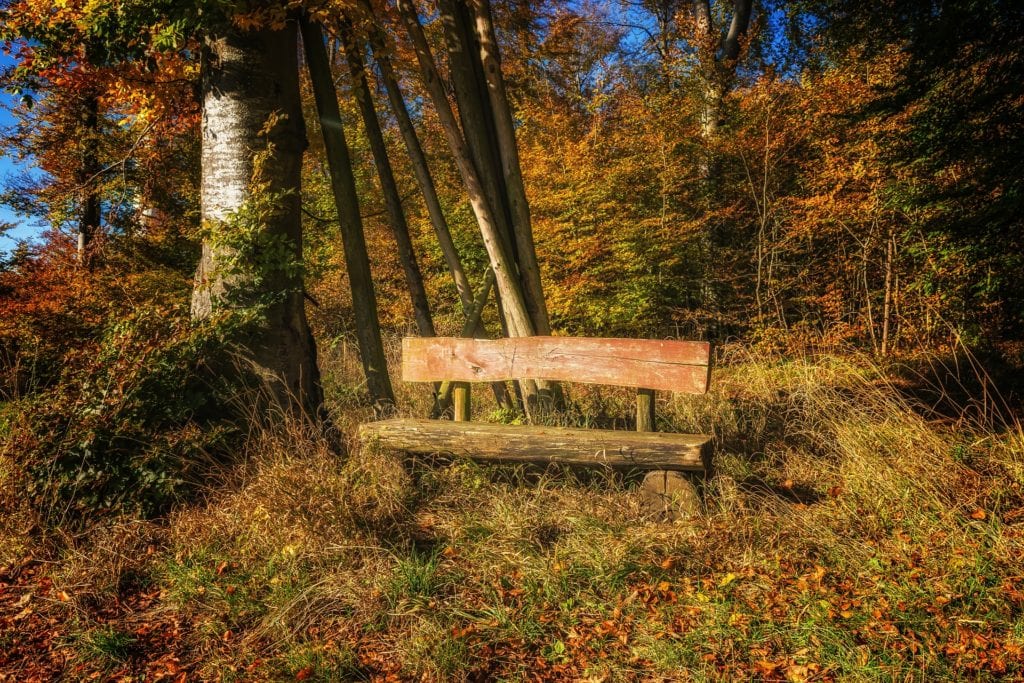
As the public narratives have gotten direr, so have people’s psychological responses. And eco-anxiety can be a problem if it overwhelms a person so much that it interferes in their everyday life. Andrew Bryant, a climate-aware clinical social worker in Seattle who runs a website called Climate and Mind, has worked with people who believe societal collapse or human extinction are now inevitable, which can make the day-to-day feel meaningless. It’s a delicate place, he says. “If they feel you don’t get it and you’re just trying to convince them it is not that bad, they’ll stop coming. At the same time, I don’t know what’s going to happen, so I have to walk a careful line of not endorsing specific outcomes they are predicting while also not downplaying them.”
Transforming Uncertainty
A lot of climate-aware therapy is about helping people sit with overwhelming amounts of ecological uncertainty. The climate crisis can generate extreme scenarios in people’s minds, futures in which humans will either save the world or die out within a few decades. Landing on an imagined future that sounds certain—whether or not it reflects scientific or political realities—can at least take a person out of that tense place of not knowing, which brings some relief. But it can be damaging when it isn’t grounded in the truth, says Bryant. By transforming uncertainty into a sense of acceptance and courage about facing what’s going to happen, climate-aware therapists try to help their clients imagine the role they could play in bringing the ecological future they hope for to life.
What traps people in eco-anxiety, Hickman says, is not their difficult feelings themselves but the feelings they have about their difficult feelings. Often, we resist these feelings because we fear they’ll ruin our lives if we give them space. But it is this resistance to feelings we’ve been raised to think are negative, like vulnerability and grief, that make them frightening. A biomedical approach to therapy would file such hopelessness under depression and try to treat it with a pill. But several climate-aware therapists use mindfulness as a strategy to help their clients bear those painfully barren thoughts and feelings. The key lies in embracing complex emotions, Hickman says. This is another important aspect of addressing eco-anxiety, Davenport says: after you validate the legitimacy of the feelings, you learn not to banish them but to live with and, ideally, channel them.
A mindful approach holds that emotions are not bad or good but are natural and inevitable parts of the human condition. Paradoxically, if we learn to create some acceptance around our emotions by naming them, observing them, and eventually learning to sit with them with an element of curiosity, we can change our relationships to them. A successful experience with a climate-aware therapist is about channelling and transforming what the heaviness of the climate crisis makes one feel rather than weeding that heaviness out.
This is another important aspect of addressing eco-anxiety: after you validate the legitimacy of the feelings, you learn not to banish them but to live with and, ideally, channel them.
After years of battling eco-anxiety and trying to beat it into submission, twenty-one-year-old climate activist Clover Hogan learned, with the help of climate psychologists, to lean in to her difficult feelings. At Force of Nature, an organization she founded that engages youth to champion environmental and social justice, they encourage young people to welcome their eco-anxiety and use it as a compass. Hogan says that the grief and hopelessness so many eco-anxious youth feel reveal what matters most to them. When that’s overlaid with their passions and talents—this is visualized for participants in a Venn diagram—a sweet spot of available agency emerges. “If you’re into fashion, why not look at the fact that a third of the world’s microplastics come from the textile industry? If you’re motivated by your gut, why not rethink that 50 percent of [fresh produce] is wasted in America? If you’re passionate about music, why not use your art to communicate the urgency of this situation in universal language?” Hogan says. The key to living well with eco-anxiety is finding some power to act.
Hogan is Australian. The record-breaking bushfires of the 2019/20 summer, which burned more than 20 percent of Australia’s forests, marked the first time she grieved the loss of a part of her culture along with a part of herself. The fires forced her to look at the more than 3 billion animals that were harmed or killed, and her friends who lost their homes, and think, “Okay, I really get that we are fighting for our lives; this is do or die.”
What Hogan finds hardest is accepting that all the action in the world may not be enough to save humanity and so many other species. Instead of advising her to banish that upsetting thought from her consciousness, climate-aware therapist Hickman (who has also served as a bit of a mentor) has helped her tap into it in order to keep going without expectation of what fruits her efforts will bear. Hogan will continue with her coaching work regardless of the outcomes. “Now that I’ve gone to the dark place of grief I was afraid of and come out the other side, I see I’m okay,” she says, “and it makes me feel more authentic in my hope for the future.”
This article was originally published on The Walrus as Therapy for the End of the World. It is reprinted here with permission.

